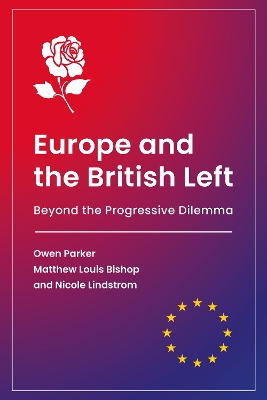Building Progressive Alternatives
1 total work
Europe and the British Left
by Owen Parker, Matthew Bishop, and Nicole Lindstrom
Just as it has for the Conservatives and the political right in Britain, the European question has divided the Labour Party and the progressive left for over 50 years.
On the one hand, the contemporary left-wing antithesis to the European Union harks back to Bennite anti-marketeer narratives. Lexiteers today make the case that the four freedoms (of goods, services, capital and people), inherent to the functioning of a neoliberal EU, undermine the potential for national progressive policies in relation to, among other areas, labour markets, state intervention and finance. There is, at the very least, a great deal of sympathy for such ideas within the contemporary left-wing Labour leadership. On the other hand, many on the left, including at all levels in the Labour party, make the case that the policies underpinning the EU’s four freedoms support a progressive politics. That historically the common market supported the emergence of the welfare state, and today the single market project embeds social and workers’ rights, challenges member-state support for large corporate interests and facilitates free movement for British as well as other EU citizens. There is, in short, a progressive dilemma for the British left in relation to the European issue.
In this empirically rich book the authors argue that the debate is often rooted in a flawed analysis of the nature of the global political economy, the EU and of Britain’s place within both. They make the case for an approach that is critical of the European Union, yet pragmatically embraces its potential to facilitate and enable a radical internationalist politics.
